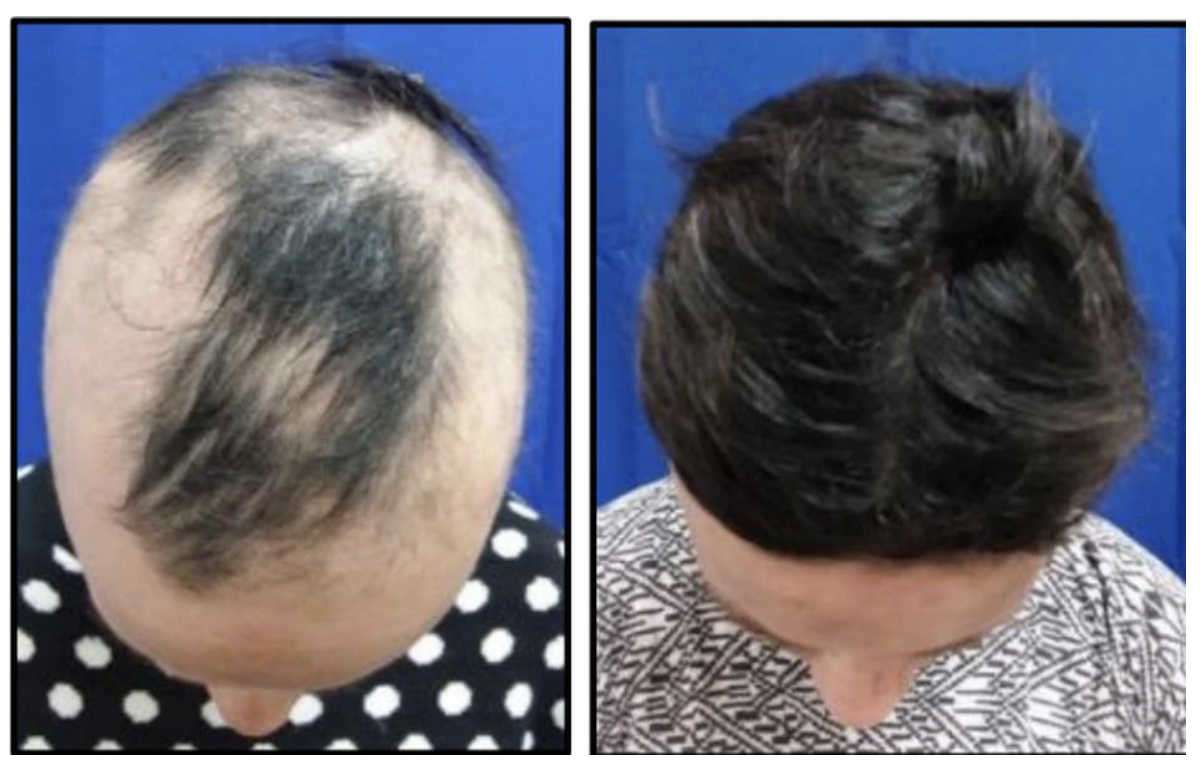BOSTON GLOBE – Concert Pharmaceuticals said Monday that its experimental treatment for a severe form of hair loss called alopecia areata could restore a nearly full head of hair in about 30 to 40 percent of people.
The small Lexington company is one of a few firms with drugs in the advanced stages of clinical testing for the disease in which a person’s immune system attacks their hair follicles, resulting in patchy or total hair loss.
Although alopecia areata can sometimes clear up on its own in months, the condition often lasts for years. There are no treatments approved for the disease.
“Like many other autoimmune diseases, it is one that has not received a ton of attention until relatively recently,” said Concert Pharma chief executive Roger Tung.
While developing the therapy, he has met people who suffer severe anxiety and depression from spontaneously developing the condition. “This can really screw up people’s lives,” he said.
Tung said that between several hundred thousand and 1.5 million people may have the condition in the United States at one time.
Massachusetts representative Ayanna Pressley and actress Jada Pinkett Smith are among the prominent people with alopecia.
Concert tested its twice-daily pill, dubbed CTP-543, in a study of about 700 people with moderate or severe alopecia areata.
To be eligible for the study, volunteers had to have lost at least half of their head hair. The final group of volunteers had, on average, less than 16 percent of their hair left, and more than half of them were bald.
The goal of the study was to regrow hair covering at least 80 percent of their scalp.
By the end of the 24-week study, the company met that goal for 29.6 percent of people who got a medium dose of the drug and 41.5 percent of people who got the high dose of the drug … READ MORE [subscription may be required].



